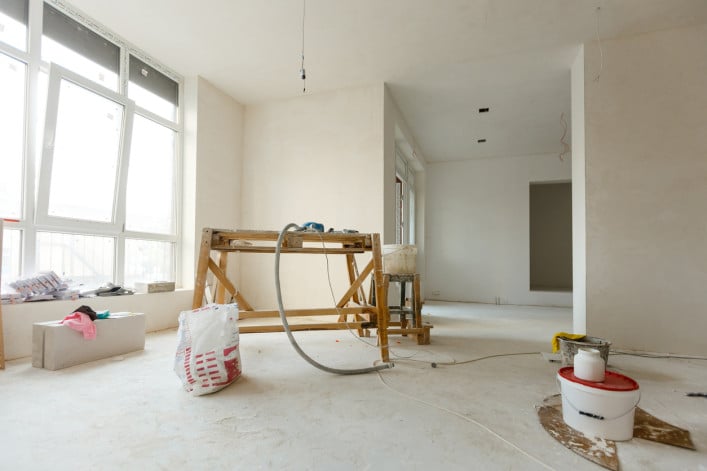My renovation project needs approval but the board is stalling—how can I speed things up?

Find out if your paperwork had any omissions or if there are other projects that are delaying your approval.
iStock
I submitted plans for a renovation project to the board but a month has gone by with no word on whether I can proceed. How can I get the paperwork approved?
Supply chain bottlenecks and labor shortages are making it even harder than usual to keep the timing, and therefore cost, of New York City renovations on track. A board that is dragging their feet approving your project only compounds the problem. So how can you speed up their decision process?
Your building's alteration agreement outlines the rules your building has when it comes to renovations. Every building tweaks this document and makes it their own but they all work from the same format and it covers the timelines for providing paperwork and getting the job done, insurance requirements, service fees and payments to the board or management, and lien waivers.
What you are required to submit in a condo differs from what is required in a co-op, so you need to understand the specific procedures you have to follow before you begin any work. If your approvals are being delayed, make sure you've submitted the right paperwork, find out if other projects are delaying your approval and whether there are ways your work can also be accommodated, and lean on management—they are there to help you as much as the board.
Did you check your alteration agreement?
In a condo, the wording of the alteration agreement usually states that a board can’t unreasonably refuse your renovation plans, says Steve Wager, attorney and partner at Wagner, Berkow & Brandt (and a Brick Underground sponsor).
“In addition, if there’s no approval within 30 days, then it’s deemed approved,” Wagner says. That means you can technically move forward if you hear nothing after a month of waiting, but that still begs the question of whether the board president will sign the application. You are unlikely to want to end up in a legal battle with your board over renovations, particularly if you’ve just bought in the building.
In a co-op, you’ll want to look at the exact language of the alteration agreement. There may be no statement about whether a board can unreasonably refuse or it may be at the board’s discretion. “Some even say you can make non-structural changes without consent,” Wagner says. However, any work that involves bringing in contractors for a long period of time or taking out debris will need approval.
The alteration agreement for both a condo and a co-op must be conducted in good faith and a long delay in approval arguably would not be in good faith, Wagner says.
Is your reno paperwork incomplete?
Knowing what paperwork you need to submit and making sure you give the board everything they want is an important first step in avoiding unnecessary delays, says Shaun Pappas, real estate attorney and partner at Starr Associates. Some boards allow you to show initial plans and then supplement them as your plans change over time. Other boards want to see everything right away, even if you are doing a huge gut renovation or combining multiple apartments.
If you submit your plans to the board but have something missing, the board might have the paperwork for three weeks before they realize there are omissions, at which point they will send the plans back to you and you have to start the whole process over again.
"If you're buying with the purpose of renovating you need to dig in to how this building is going to receive a renovation request and what hoops you will have to jump through," Pappas says.
Are there other capital projects or renovations?
Depending on what else is happening in your building, the board may not want your renovation to happen as promptly as you do. For example, if there’s another significant project going on in the building, residents will be dealing with multiple sets of workers—and all the noise, traffic, and dirt that entails. In a big building with, for example, 600 apartments, the board and management may be dealing with multiple renovation requests from residents.
"It’s a lot for the management to deal with, from insurances, to who is coming in and out of the building, and making sure these are the same people that are allowed to come in—sometimes they have an incentive to delay—and they will take advantage of the rules they've put in place," Pappas says. In another twist, it's possible a board may approve your plans but say you can't start the work for several months.
If you find yourself in this situation, it may be that you can work out a plan with the board or management. Ask what other projects are going on that are preventing you from starting your project. If there’s a valid reason, ask how your construction schedule can line up with their plans.
"A lot of renovation projects happen in stages—sometimes demo work is not a huge undertaking and can be done in a few days and then you can stop and wait another week for supplies to come in like flooring, and in this way you can get on a schedule with the board," Pappas says.
Are you leaning on management?
Renovations are typically run through the management and Pappas says owners often forget that management works for the unit owners just as much as they work for the board and the building.
"The management get direction from the board, of course, but they are your conduit—you have to really lean on management so they are pushing your documents through, your alteration agreement, and if the board are requiring additional insurance or money in escrow, get that information from management as quickly as possible," he says.
Follow up with management and keep speaking to them about your project. If you are in a small, six-unit condo building, and the board are your neighbors, it may be easier to approach the board but in a bigger building, the management will be your key to getting your renovation moving. They also have an incentive to push projects along—they are often getting fees and payments from the project.
It might also be in your interests—and win the management's favor—to use contractors and sub-contractors which they have recommended. If you don't have a specific contractor in mind, Pappas says, "You might as well pick someone who knows that management company, who is familiar with the building, the board, the procedures—you may pay a little bit of a premium but why not have that inside track?"
Have you given yourself as much time as possible?
There’s often a misconception that you can start your NYC apartment project when it's most convenient to you. Pappas says, "People just assume they can start as soon as possible—it usually takes much longer than that."
Early on in the pandemic, boards were regulating who could come in and out of the building and even though there's more flexibility now, new coronavirus variants could change that. "Those very restrictive powers are there and if the board needs to exercise them, they will," Pappas says.
Plan on your project starting six months out, or a year if you want to have a really accurate safeguard.




























